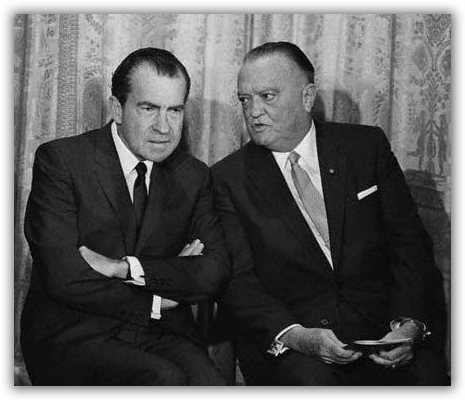aNewDomain.net –Will our enemies really be emboldened merely by publishing the actual number of times Google, Microsoft and Yahoo have been asked to provide customer data to the National Security Agency?
Really? At the moment, the government is censoring publication of that one number — that’s the number of requests the NSA has made to various social media and email services such as Google, Facebook, Yahoo and Microsoft.
Check out my spreadsheet data below. Look in the middle of the fold to see what number the analysis shows it is.
In other words, this small piece of information is presently as well-protected as the launch codes for nuclear missiles, as kept a secret as the precise time that a spy satellite passes over Kabul, or as hush hush as the number of CIA agents there are in Beirut. All this under heavy-duty federal “prior restraint” censorship.
In short, Google, Facebook, Yahoo and Microsoft have presently lost their First Amendment rights to free speech as it pertains to this number. No wonder they’re filing brief after brief with the secret FISA court. Read the briefs here.
And seriously. Is the number of times the NSA and other agencies ask for data from tech companies even as important as the locker combination for one of the Obama girls at the Sidwell Friends school?
The gravity surrounding this number seems preposterous to me. So I contemplated some test numbers: 12,000; 34; 9,001; 62, 5, 3 and 1. I couldn’t figure out how any enemy of the U.S. could possibly use this information unless the disclosed number was released with a precise request date.
Google’s Transparency Report, which I discuss below, shows that other agencies of the U.S. government are already the world’s greatest recipients of Google-customer data –- by a long shot. Yes, the U.S. is No. 1 in Google-customer-data requests and releases.
Not what you expected from the Land of the Free? But wait. There’s more.
I noticed that Google already listed a range of numbers from 0-999 on the U.S. page of its Transparency Report. So, I thought about the numbers in this range: 999, 913, 882, 16 …
And then the number 0 hit me. Zero. Interesting number, zero. None. Nothing. Nada.
So let’s assume that the NSA had issued no requests for customer data to Google, Microsoft, Facebook or Yahoo. What would this mean? It could mean that the government has already captured all the customer data from Google, Microsoft, Facebook, and Yahoo that it wanted — with or without tech companies’ knowledge and cooperation.
I seem to recall that Snowden’s disclosures showed that the NSA already had the data from the tech companies, but several, though not all, tech companies claim not to have given it to them.
So how did the government get the data?
If the government just took the data for all the customers, then that kinda sorta looks like the government is spying on the whole of its citizenry. Which the Constitution, a spate of laws, dozens of agency charters, and the like all forbid. This is precisely the sort of thing that we used to say separated us from, well you know, the “bad guys.”
Actually, doesn’t a government program that captures and analyzes all electronic communications in North America sound like something from a bad Tom Cruise movie? It’s like a real-life Minority Report. But scarier.
It’s always a mistake to copy something in real life that appears in a movie, especially something that appears in a Tom Cruise action movie.
Bad idea. Really bad idea. Apart from the cool wardrobe, it’s just an awful idea.
Let’s hope that’s not what they’ve been up to.
It’s doubtful that terrorists could use the number of NSA-information requests to their advantage whatever the number might be. But it’s no stretch to imagine that foreign intelligence services might find this interesting information. Then again, they probably already know this, no? After all, they’ve had to deal with Echelon for 40 years now.
Imagine you’re the head of electronic counter-intelligence for the Russian Federation or the People’s Liberation Army.
How shocked would you be to learn that the Americans have copied something you thought they had been copying for 20 years already? Not much, I’d guess.
The range of real reasons for keeping this information secret begins to look more like one or more bureaucrats trying to avoid embarrassment.
Just think — you establish an invasive and barely-constitutional (or maybe not even) snooping program under a goofy but arrogant president, aka George W. Bush. And then you run it like the Keystone Cops.
It’s just the sort of thing you’d want to cover up, no?
The Supreme Court has repeatedly said that the government cannot use censorship to prevent the embarrassment of public officials. It’s not a stretch to foresee that the public might be outraged to learn that the government had simply helped itself to reams of customer data from the country’s largest tech companies.
The government has yet to offer a public explanation as to why publication of this number would endanger national security. In fact, the government keeps asking the FISC court for extensions of time. If the government can’t offer a compelling reason for keeping this number secret, then it must be published.
The funny thing is that the U.S. government – you know, those freedom-loving Yanks – already receives the lion’s share of data that Google gives governments around the world. Google publishes a Transparency Report, which is very helpful. But the data is listed country by country and doesn’t seem to be aggregated although it is available as a table.
So, I aggregated the data. What does it show? Well, it shows that the U.S. was responsible for nearly half of all the disclosure requests received by Google from world governments since 2009 with 41,146 requests. The next-highest countries were Brazil and India with nearly 13,000 each. Russia made just 255 requests.
In terms of the numbers of customers associated with the requests, the U.S. was again the league champion with 54,372 requests, nearly half of the 122,000 total requests since 2009. The next-highest country was India with about 13,500 requests. Scroll below for more analysis. See my spreadsheet embedded and readable below.
Google also provided information on the percentage of times that it granted the information request. The U.S. was again league champion at 91.6%. So, not only does the U.S. request the most data about the greatest number of customers but it actually receives the most data, too.
Excluding the U.S., the combined percentage of requests granted was a mere 47.5% — that’s quite a contrast with the U.S.’ 91.6%. Turkey and Hungary had none of their requests granted.
So, the U.S. government already receives more data from Google through warrants and subpoenas than any other country, yet the NSA doesn’t want to release the aggregate number of its requests to Google. That seems very odd. After all, at the numbers that Google has suggested, this would seem to be just a few more drops in a very large bucket. So, what’s the deal?
Of course, there’s another possibility. Consider it the mystery movie end reveal. You know, just when the movie is almost over, and we’re convinced that Kevin Costner is a patriotic Naval officer working at the Pentagon, we discover that he’s really a Russian spy.
Well, the only information that the tech companies want to publicly release is the number of requests they’ve “received” from the NSA.
What if the tech companies have willingly provided the information such that the government never had to make a formal request?
If that was the case, then disclosing that no requests had been made would be extremely misleading. But we have no evidence that this could have happened.
Google says that it hasn’t given the government anything, so we should take them at their word. It’s interesting that Google’s filings in the FISC court show that two Google employees (John Kent Walker, Jr. and Richard Paul Salgado) hold FBI secret clearances. Who knew that Google needed its employees to have government security clearances? That probably merits a few questions for another day.
Anyway, the Constitution only allows the government to censor the press under the rarest of circumstances, and this circumstance cannot possibly be one of them.
Have you written your Congressman lately? Now might be a good time to start.
If an unconstitutional prior restraint doesn’t rile you up – how about a search and seizure program that surpasses any of the Iron Curtain countries that we used to complain so bitterly about?
UPDATE: The FISC court today agreed with the ACLU and ordered the government to review for declassification certain of its records-collecting activity. The court specifically commented on the confessed actions of Edward Snowden in releasing NSA data, noting: “The unauthorized disclosure in June 2013 of a section 215 order, and government statements in response to that disclosure, have engendered considerable public interest and debate about section 215. Publication of FISC opinions relating to this provision would contribute to an informed debate.” Read today’s ruling here.
Based in the U.S. and Europe, Tom Ewing is an intellectual property strategist and attorney who advises the United Nations agency WIPO on patent issues, lawsuits and strategy. He also is a senior editor and a board member at aNewDomain.net.

Image of Richard Nixon and J. Edgar Hoover credit: NixonTapes.org












